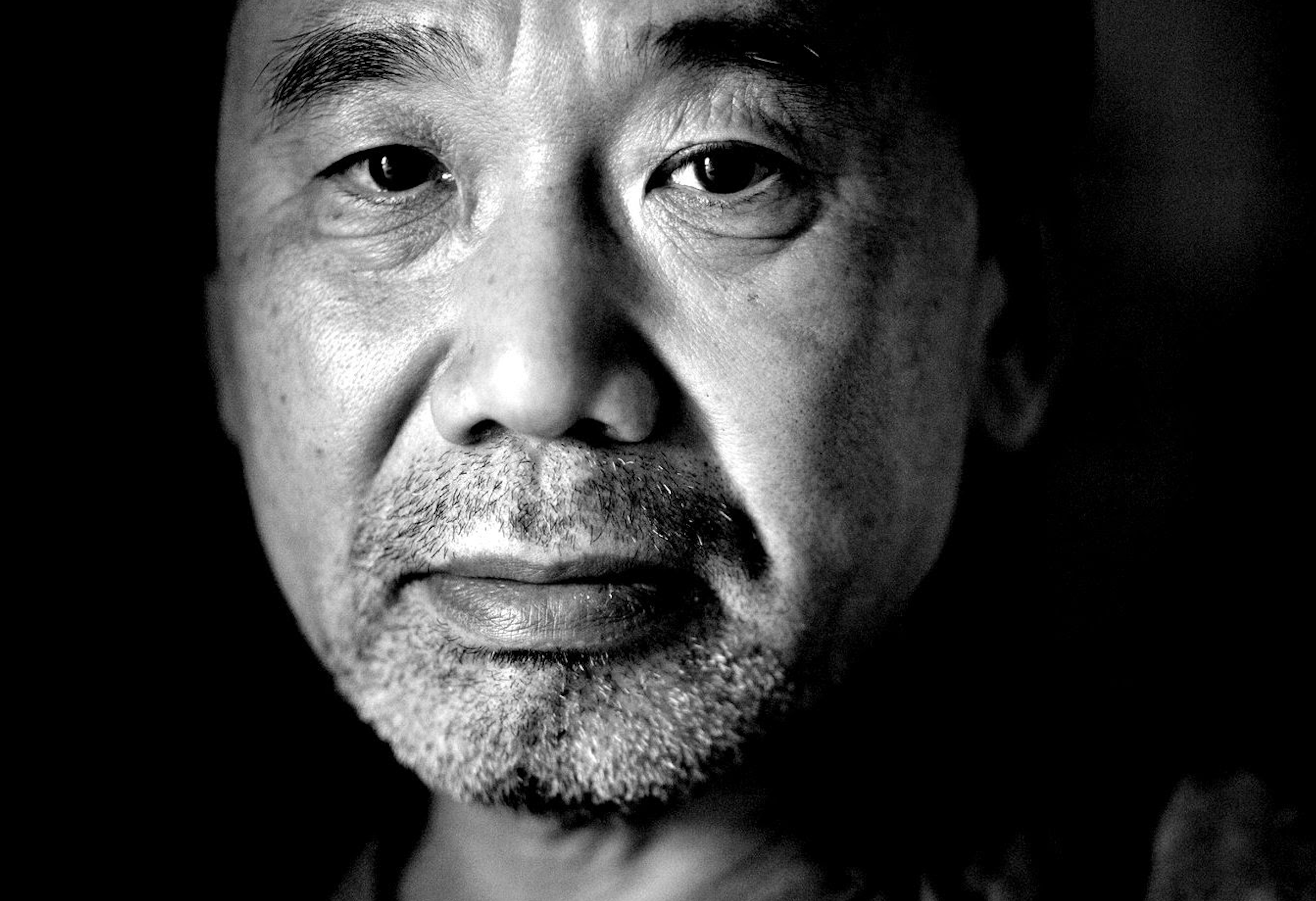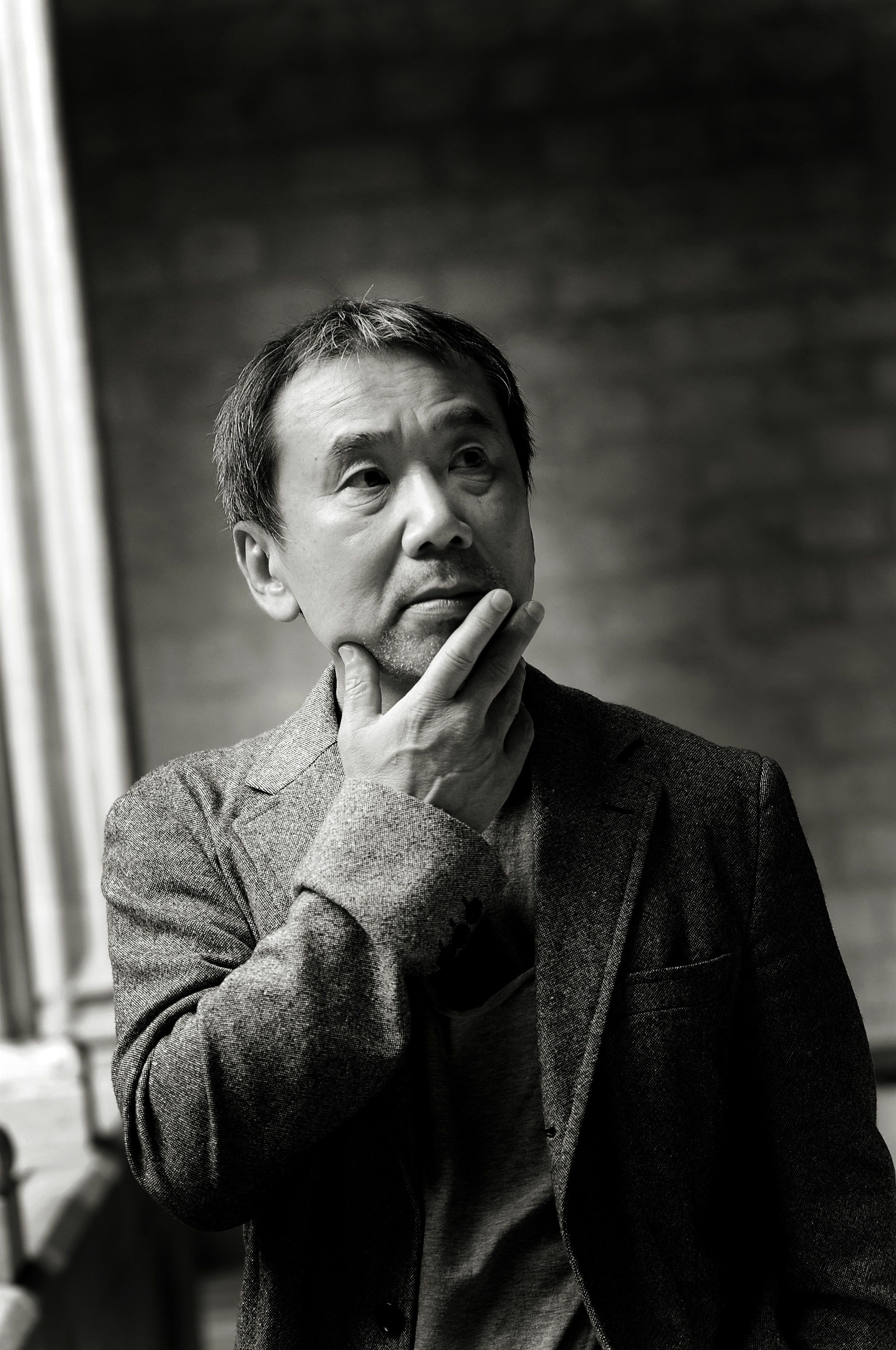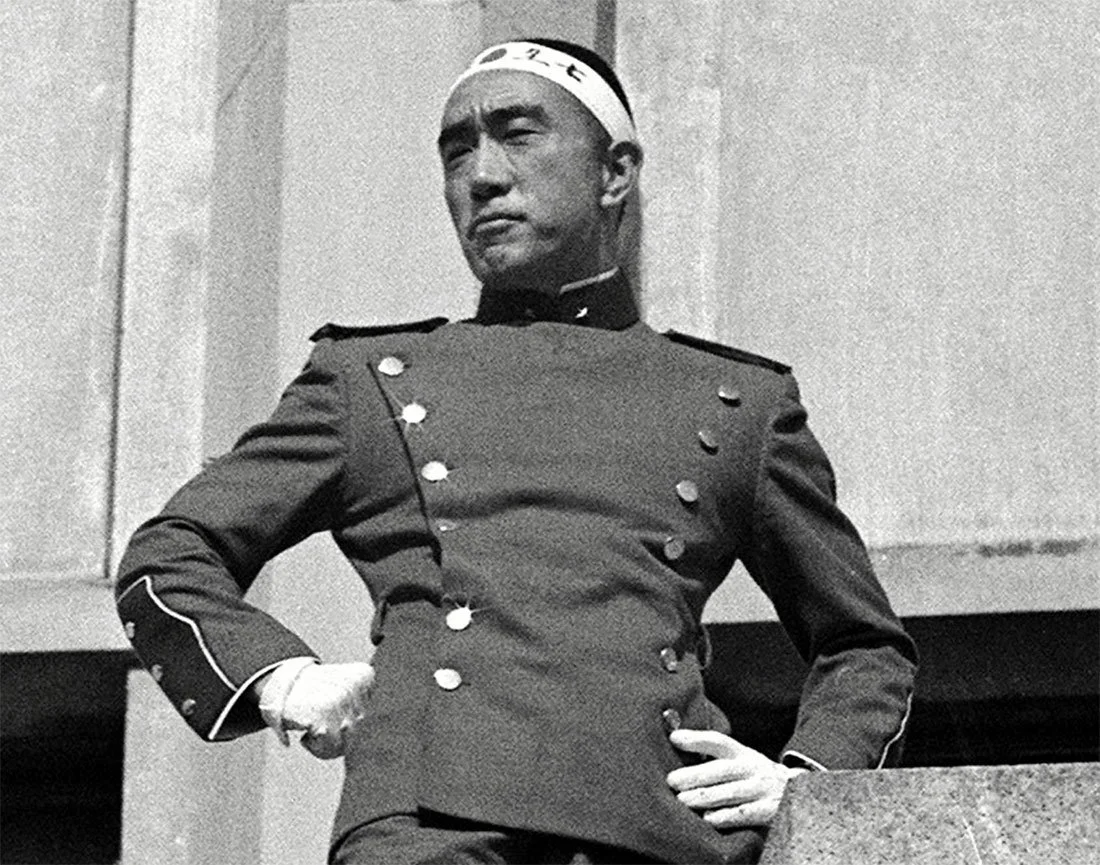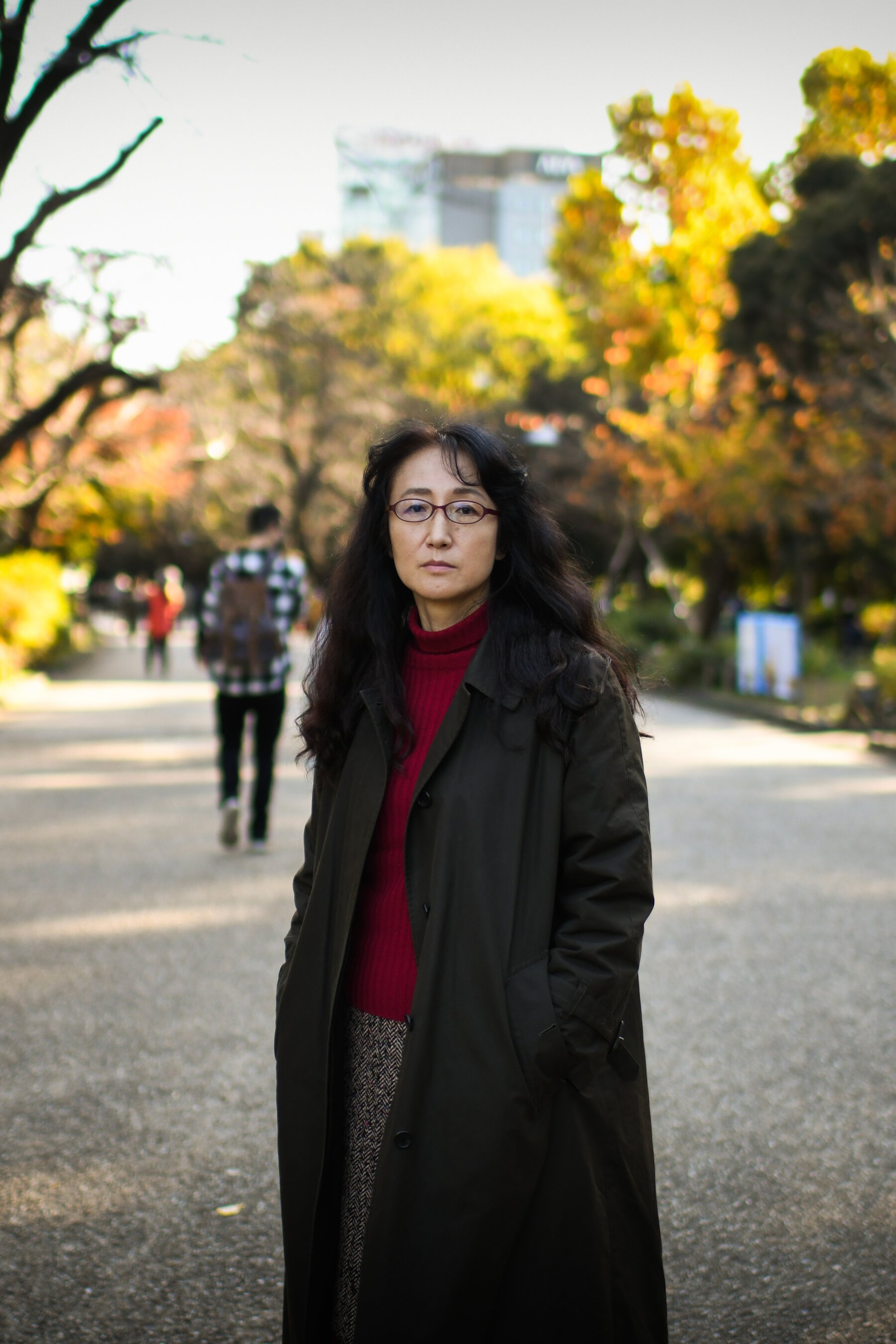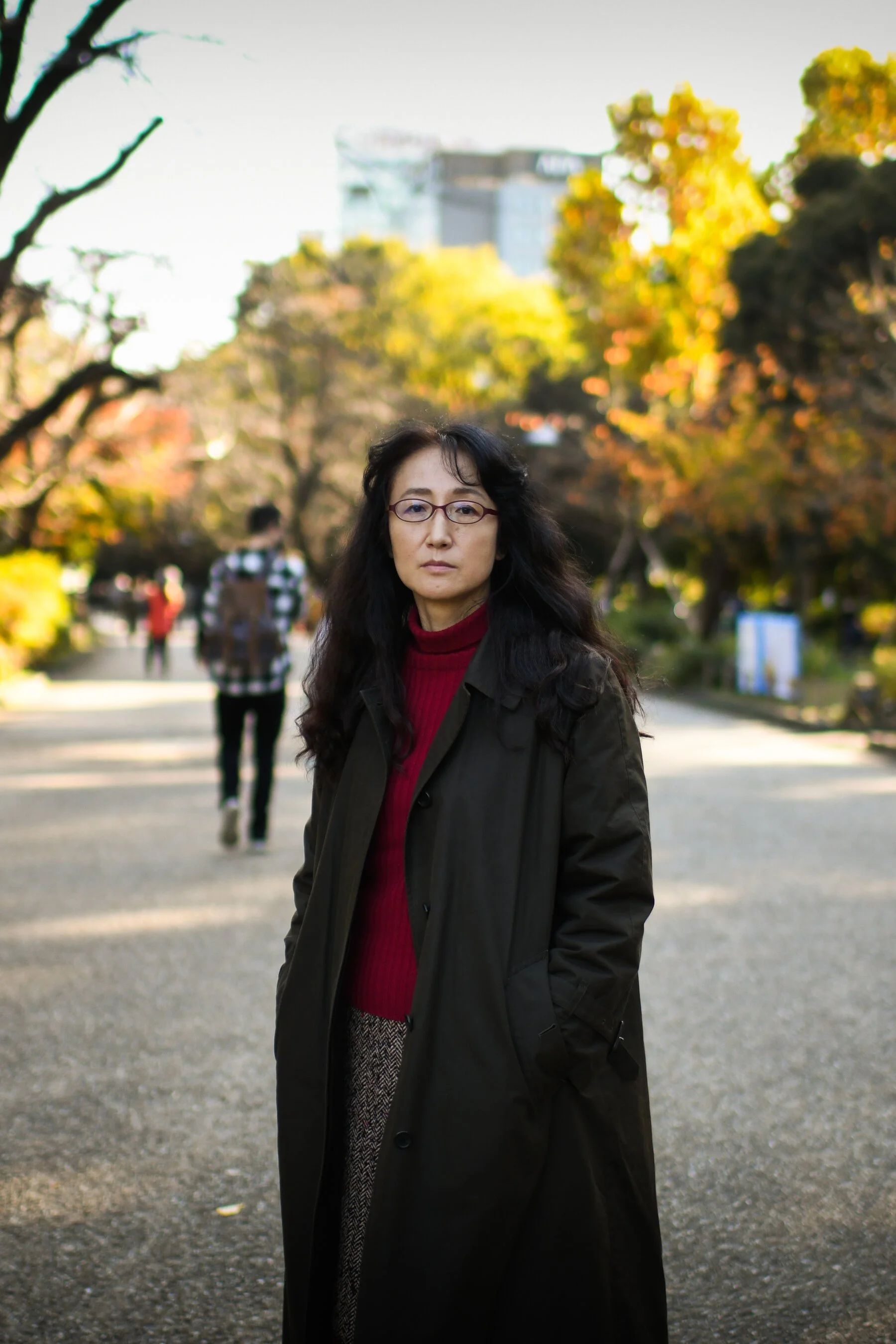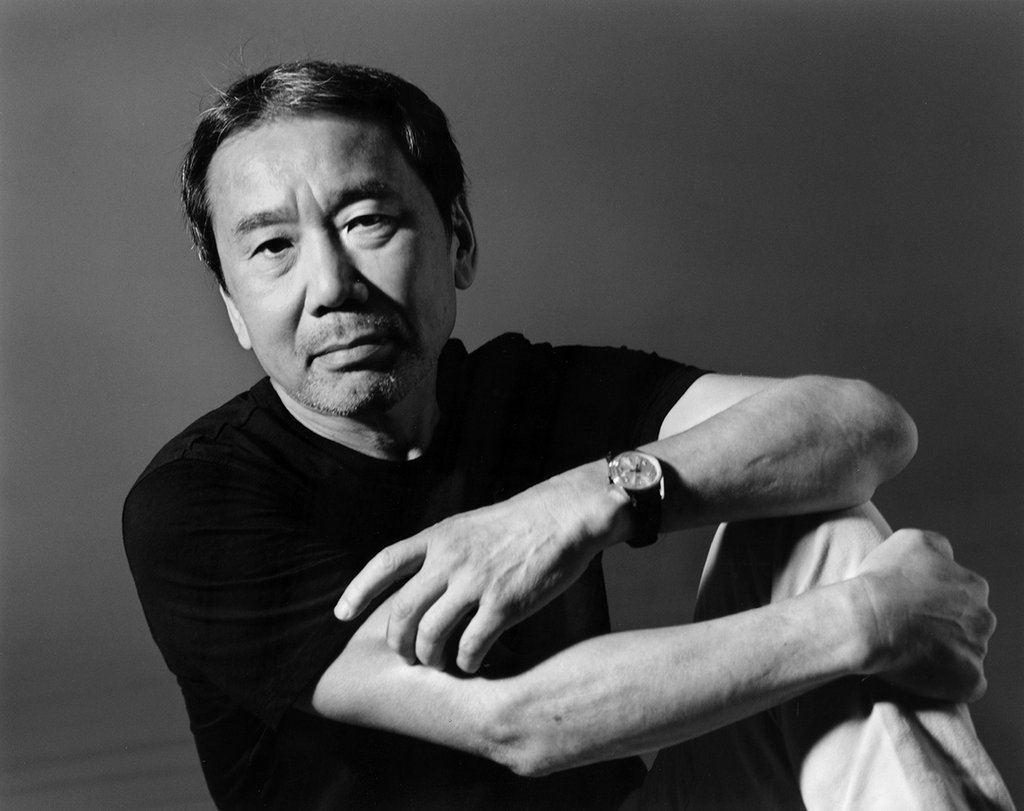Articles.
The long Wind-up Bird Chronicle by Murakami
The infamous Wind-up Bird Chronicle by Murakami has many mixed feelings but I believe it to be a masterpiece.
If you know me, you know how much I love Haruki Murakami’s work. The Wind-Up Bird Chronicle did not disappoint. Like most of Murakami’s work, the story revolves around a simple character. Toru Okada, to whom the tale about takes us through his journey, and Murakami does a fantastic job at taking us through it through his excellent storytelling. Murakami uses the nonsense in the world, including individuals, governments, or even the nonsense nations may create, to create a story that confuses the reader in the best way possible. Murakami explores themes of isolation, loss and being lost of an individual and Japans history, the world left of World War II. This almost-boring character who seems to have no purpose except finding his cat and later on his wife is turned into a detective raising questions for the readers but which he is not as interested himself.
Toru Okada is a lost, passive main character. He doesn’t have massive motives in the story except maybe his wife. Toru’s lack of interest in the world might get repetitive at points as he spends most of the time raising more questions instead of answering the others. Murakami has created a mystery story where the detective is not interested in answering the reader's questions. This leaves us with unanswered questions at the end of the story that some readers might find annoying.
Murakami does carry the story to the point of repetitiveness. When Noboru spends time at the bottom of the well, I felt like those chapters were just used to further this story. Furthermore, when talking about the war, it might have felt too long even though it was exciting and helpful to the report; two or even three entire chapters of Lieutenant Mamiya’s story might be too much.
However, I do have to say that having some Japanese history was one of my favourite parts as when connected with the actual story it brought further my interest. This might be a consequence of the previous knowledge I had of Japan’s history and hence I found it easy to understand.
As mention before this story explores difficult themes of loss and identity. Toru doesn’t seem to need or want an identity, he does not look for answers and meaning of the bizarre occurrences that surround him. He rather conforms with everything. The rest of the characters are different however, they all look for their own identity and meaning of what to do and where to go. A great example of this is May Kasahara, the teenager who feels responsible for her boyfriend’s death. Even though she has lost her place in the world she still tries to look for a new place to go and be herself, a new identity she can actually understand. She goes to one of the most bizarre places, a wig factory, she is herself in isolation as she starts to answer her own identity questions.
Toru does not have a personal identity. Murakami explores his lack of identity by not answering the weirdest and bizarre questions being risen. He also explores as mentioned before Japan’s history and even comments on the wrongdoings of his own country questioning the reasons for these terrible happenings. The nonsense that surrounds us humans made by us individually, the governments we have and even our countries are used in the story to create this mesmerising mystery novel. But, Murakami creates even more nonsense with my favourite type of magical realism where he creates substories that make no sense but are never questioned.
What drives me more to Murakami’s worlds is his magical realism as he is one of the best writers to use dark themes that can be relatable to many people. But makes them more non-humanised by using magic and bizarre happenings and his superb writing to make them more relatable and hence more entertaining. He builds narrative tension for the reader to continue to read and thus, under the surface, to explore those dark themes which might be hard to talk about usually.
In summary, this might not have been my favourite Murakami book but, looking back on what I have learned and explored in this story, I am very grateful to have read it and I would recommend this book to anyone who loves Murakami or someone who enjoys Japan’s history in World War II.
I am shocked at how confused Conversation with Friends left me - Sally Rooney
The debut novel by Sally Rooney might not be the best but what really shines is the complexity of its characters.
After reading Normal People and loving it I knew that the next step was to read Conversations with Friends by Sally Rooney. I thought it would be a similar style of story and similar characters just a different plot. However, Rooney’s debut novel left me confused. The style is similar but, something that I loved from Normal People was the third person narration and following each character through time and lives. She uses first-person narration in Conversation with Friends meaning we get closer to Frances, our main protagonist. Frances is weird, special but has a complex deep mind. Her thoughts and feelings left me confused and hence the title.
The word confused might sound negative but it is a compliment to the text. As with normal people, Sally Rooney has me starring at the ceiling at 3 am with no other reason than complete and utter awe. Frances is an interesting character to me, I hated her, for most of the star but, the way she is written brings my love to her character. She sees herself as an almost feelingless and inhuman person, but she thinks I could see her depth and complexity. When she is hurt she doesn’t display it the same way as Bobbi or Nick do. She is way more reserved and left outspoken but we can see how deep her trauma goes into. Even though Frances to me is someone I would not like to be friends with, on paper, she is perfect. Sally Rooney has created an extremely complex character and this is enhanced by the lack of communication Frances shares. Even in her mind, she does not share much and this might be for the lack of emotion but, for the lack of understanding of these basic feelings that she has. This is where her intricacy starts.
Nick is the love interest. I believe this character was meant to be the complex character that Frances is. He is supposed to be this two-faced character but, I see him like a meaningless almost dumb character that I hate. Yes, Frances is also part of this relationship but, the way Nick handles it with Melissa, his wife, is incredibly dull. I don’t like his character and there is no complexity behind this.
I missed a better story for Bobbi. She is incredible and I believe the book would have been better if Bobbi’s story and personality could have been explored further. Bobbi is a fun character. The fresh side of the depressing life that Frances is. She knows how to talk and how to communicate. I don’t believe that the book would have been better with Bobbi as the main character as Frances brings the complexity that makes Sally Rooney such a good character builder. Bobbi however could have been further developed into Frances story.
We can gather that Sally Rooney is how her stories are not plot-based but rather character-based. We do not learn from the story and we do not care about the path the story takes to develop. we rather care about how these characters grow and develop. We care about the thoughts these characters go through and what their development is. That’s why this book is so good. I think this book should be read by any lover of books.
Normal People is meant for normal people - Sally Rooney
I think the title of this book says it all. If you read this book the characters will stay with you for ever!
The popular Sally Rooney novel has captivated me not only because of the writing but because of the raw organic story that she has created. Some people believe that her novels lack a story, something that is entertaining enough. I believe that what makes this book so special is the characters. Her books are not plot-based but rather character-based. The relationships built in Normal People makes you part of it. Marianne and Connell grow up together and you grow with them. Of course, this book takes place over many years but as you read on you feel like you learn new life lessons that they also learn.
The story begins in their last year of high school in Ireland. Marianne is the unpopular misunderstood girl in school while Connell is the popular football player. It starts as a typical high school romance novel. However, they start dating and sleeping together which starts raising questions about Connell’s morals. He is of course embarrassed by Marianne so they keep it a secret. What differentiates this story from others is the growth the characters go through. Once they arrive at uni, the roles change. Marianne is the beautiful popular girl and Connell is the shy misunderstood guy.
What I most enjoy about this is how both have separate lives but they always end up together. Every time they get separated they always find a way to get together. They are friends first and lover second which shows a real organic relationship between the two. This feeling of a normal love story with an internal character growth is what stays with a reader. Sally Rooney creates characters that you understand and sees yourself in even if the story itself is not similar to your own life story.
The time jumps were hard to get used to. She jumps from time to time and flashbacks in almost every chapel. It’s sometimes hard to keep up with these cups. The flashbacks only drive the point of a normal story. When you think you have thought jumps all the time. So, it was hard for me to get used to but once you do I believe it only brings the feeling of the organic sense even further.
Sally Rooney tends to use everyday discussions in her character’s conversations. It might not add anything to the story itself but it does make the character feel more from the everyday society we live in. We can see both sides of an argument usually and if those are not explored there are different opinions on everything. This enhances the idea of a normal story as it shows normal conversations that uni students might be having in today’s society. This also enhances the character’s growth throughout the story and the reader can learn more from them. This novel seems like a glimpse into two people.
The ending is what some people might not like. Yes, an open ending is always infuriating especially in this story as we have seen both characters grow and finally get together. However, this is what the title suggests. It is a normal story between two characters that still have a life (something that some romance stories do not have). Their whole personality is not only based on their love between the two so, but their continuing life without necessarily together only showing that they still have a life and that life also continues parallel to their love story.
This is a story of two friends that are meant to be together. This is a story between two people who grow up and end up finding each other. However, you see it I believe that this story is very touching. The characters stay with you somehow or another. You can comprehend them and see yourself in them. The writing is exquisite and Sally Rooney knows how to create powerful characters.
First Person Singular, another confusing mesmerising book by Murakami.
Eight short stories, Haruki Murakami, beautiful cover, what could go wrong?
When I heard that Haruki Murakami was coming out with a new book I was quick to buy it and as soon as it came, to read it. His 22nd book is a collection of 8 first-person singular tales which mostly take a Murakami similar style. Most of the stories are full of colour and have a nostalgic-like feeling that all Murakami have to have on me. They mostly talk about music, sex, and other mundane things. It is an interesting read and if you enjoy Murakami book you will for sure enjoy this one..
The first story is Cream which might be one of my favourites. It is bizarre and strange, but it discusses a complex idea that makes you question yourself throughout. Not everything makes sense and not everything has a reason to it. The narrator finds himself in a weird and inexplicable situation that never seems to get solved. This tale was addictive as you find yourself looking for answers that never exist.
The second story is On a Stone Pillow which takes us through another story that talks about an inexplicable feeling. What I most enjoy about this one is the tanka poetry used. I loved that it was well written and not only for the story itself. I enjoyed the feelings that our narrator was feeling when reading those poems as it is how I feel when I read the poetry. It was very raw and I really enjoyed that.
Charlie Parker Plays Bossa Nova was also an excellent story. It was bizarre and unforgettable. I sometimes think about the possibility slitty of this happening to me. This one has to be one of my favourite ones too as I still think about it.
With the Beatles, feels like a Sally Rooney novel and I love that. It is a simple heartbreaking story that includes Murakami’s love for music. Murakami has been using his love for music in many of his novels but the description of the girl holding the record really touched my heart. That might have been my favourite descriptions by him in all stories and books.
The fifth story brings back the strange and bizarre Murakami style. A talking monkey with a strange talent. This was a magical and bizarre story that was equally entertaining. This, has to be one of the best out of the 8 as it really shows Murakami through the words.
The sixth story is Carnaval which has the best opening to anything ever. It’s snappy and funny. The rest of the story is quite mundane but thanks to that opening the whole story deserves a read.
Then comes the seventh story. It’s actually not a story but a small glimpse into Murakami’s love for baseball and poetry of that love. I can say that this has to be my least favourite. It’s not entertaining and if I am completely honest, I hated the poetry itself.
The final story is the best ending for a short story collecting. It was fun to read, and it was also the best magical of the 8th. The ending leaves us Wirth our mouths open hoping to have an explanation or a sequel to the fantastic conclusion.
I have to say that this was not the best Murakami book I have read, but it was still entertaining. The few stories I really enjoyed I will recommend but, the rest I cannot say they are worth the read.
My heart was broken after reading The Song of Achilles - Madeline Miller.
Achilles golden presence has touched me thanks to the gentle eyes of Patroclus, and now, I cannot stop thinking about it like, every day.
Finding something that can make me cry as much as this book has, is difficult. This is a different take on Illiad's classic story, but it is as enjoyable as the classic is. The story is filtered through the eyes of Patroclus, which takes a different take on the happenings. It is quieter and more serene. The fantasy is toned down as Madeline Miller uses the real myth to make it more charming; she does not overuse it and doesn’t use too little to make it just a romance story. It discusses both the positive sides of humanity and the opposing sides of the take of power and stubbornness.
Patroclus takes the story to another level. We know the ending to his story and the Trojan War's termination, but that does not drive us to keep reading but rather his view on the happenings. His beautiful words show how much he adores Achilles, but that does not mean that he is affected by his thirst for power. It shows what the 2004 film ‘Troy’ did not want to show, actual homosexuality, and we get to see it from the gentle Patroclus, which made me feel like the story was filled with gold.
The prose is magical, charming and enchanting. The language is straightforward and straightforward, while the description is forward and deep. The combination of both makes the read an easy but drowning experience. I enjoyed the imagery used as it uses light as a powerful tool to show Achilles power and stubbornness. If you like poetic writing, this is for sure a read you should take on as it manages the words to feel golden on the tongue. I have read people mentioning the prose as purple prose, but I could not disagree more. It is extravagant in a positive way. The description moves us in thousands of patterns and takes us back to 1180 BC.
As mentioned before, the story seen through Patroclus eyes takes the theme of thirst for power further into the choking feeling of inflexible thinking. However, it keeps discussing the beauty of faithful and innocent pure love. It makes us wonder whether we, as ordinary people, might belong with this type of epic love in our lives. It is portrayed beautifully, organically and perfectly. They grow up from young boys to powerful grown men, making the passing of time makes sense.
Achilles is not the perfect hero, as Miller discusses in the Center of Fiction in November 2012; it shows the authentic and exciting life that greek mythology has. It has many historical facts taken for the Iliad, which are accurately portrayed and changes others to make the fictitious side of the story more prominent in our minds. Even though known by most of us, the ending of the story does touch us in many different ways that the Iliad does not.
This story drips with emotions. There could not be enough words to describe the effect this story has had on me and how much I have loved it. The golden story of Achilles is made ten times better when Patroclus tells it to us which, makes it love it even more.
The terrifying judges of right and wrong by Yukio Mishima
Disturbing, terrifying and disgusting but equally glorious and elegant. This book has changed the view I used to have of how literature had to be. I have once again fallen again with a new Japanese writer.
Yet another fantastic and intriguing novel that I have been introduced to by Japanese literature. Mishima'sThe sailor who fell from grace with the sea” is a work of art. It talks about themes such as death and life and romance and objectivity and betrayal and punishment. It is a terrifying story that the more you read, the closer you get to those fears that you have grown inside you.
To understand this novel, there has to be a minimum understanding of who Mishima was. He was a Japanese play writer, actor, singer and writer. He is critically acclaimed worldwide as the most significant Japanese writer of all times, but that is the least exciting thing. He was significantly involved in politics, he was an imperialist, and he clearly supported the war and what came with it. He was married and had two children; however, he had many affairs with a homosexual man. He died in 1970 through the act of seppuku or harakiri, an act of killing oneself for the purpose of morality and the greater good. He is said to have killed himself because of politics or morality. He was an imperialist and fought to have the same moral code that samurais had. He was also a known homosexual man who had many affairs with male actors who impersonated women. His life was full until his last day, and I would really recommend watching the documentary. I will link below.
The story is terrifying and disturbing. Not because there were frightening points were I had to stop reading and look around my room, checking for monsters. It was more like the whole idea that there might be someone in the world so terrifying and full of disturbing people. One of our main characters, Noboru, is a group of kids who think of the authority or power of justice. They are the judges of right and wrong. We see some parts of the story through a third-person narrator through Noboru’s eyes. He slowly sees what is happening. This was too terrifying to me because he acted as if nothing was wrong. Even if they were not “normal”, his comments and actions worked as if nothing was wrong. The fact that he watched his mother through a hole in the wall and, equally so, went to sleep without any consequences.
The group of kids are thought to be exempt from the law not because of their young age but because they are meant to judge everyone else’s actions. They believe that they have the authority to know what sin is and to take action against that. They are like the accountants of every sin people commit, and they have committed. They are not accounted to sin as they are the judges of other people’s sins. They are the protectors of humanity, one that has no real purpose. It’s their duty, and if they don’t do anything to redeem other’s sins, there will be chaos. It’s their responsibility to punish those who sin.
For 13-year-olds to think this makes me shiver. The last few pages of the book are where the action takes place. It is focused on just a small fraction of time that makes it so effective. It is not a horror novel but rather a physiological thriller that makes us question what reality we are surrounded by. There was a part I was too disgusted with, and that was when the children kill the cat like it was never alive. This part was disturbing and terrifying just by itself. The fact that scared me was that they thought to have the authority to punish those who were wrong in their account. They have the excuse that their actions are for the greater good and that they are using these to protect humanity's fate.
It is scary but equally addictive. We expect horrible things to happen to the sailor, but we don’t expect the children to be so terrible and fo the story to be so dark. I kept reading, and it never really told me what they were going to do precisely.
This book shows how something as disturbing as the brutality the kids go under, and the horrible thoughts that take place, and the elegance that Mishima is using to describe these events can become something beautiful and so readable, becoming an instant classic. There were so many abstract topics discussed and talked about, but Mishima and the translator John Nathan were able to captivate the reader with their magnificent words. Their words were so poetic that I had to reread those words. It felt as I was reading the wind and the sea simultaneously, and I could feel touched by those words.
This book discusses many themes that were obviously important to Mishima. He was a right-wing imperialistic homosexual. You might disagree with his political ideas, but it doesn’t mean that you can’t enjoy how much of a masterpiece this book is. It talks about glory and honour. The kids think that they can detach emotionally and detach form life, hence the horrible scene with the cat. I believe that those disturbing parts of the book help the reader understand how the writer wanted to make the kids and the ideas present. Yukio Mishima wants the reader to get uncomfortable in their houses' comfort to make them realise how terrible their thoughts actually are.
He also discusses the idea of love and how it can bring meaning and honour, but it is not what men would want or how they want to read that sense of glory. He discusses the idea of masculinity and what some people might think masculinity would take and what it takes to reach that glory they seek. The group of kids are willing to kill Ryuji to give him the glory he wanted. They think they have the honour to do so and that they can do that because they have detached from humanity and are no longer subjected to something as weak as emotions.
The Homeless Japanese ghost by Miri Yu
If I had to recommend a book to start with Japanese literature, I would recommend this book. It is a great introduction that shows all the wonders of this type of literature…
The repetitive life of our homeless narrator that captivates you with his words. You can see hidden Japan in the shadows, the real Tokyo. He is a social outcast that describes his own view of life. It is heartwarming but sad throughout the short novel. It is a discussion of love, life, and death beautifully assembled using different imagery and tone to describe his feelings or what he is experiencing.
The main character, Kazu is a struggling working-class member, he is a social outcast, he was born the same year as the emperor, and both the men’s sons were born on the same day. It shows the parallelism that the world can involve. The emperor’s son is born in a privileged life while Kazu’s son was born in a low-income family. Equally, it talks about the theme of death as his son’s life was cut short by an early death at the age of 21 for natural reasons. The emperor and his son will live a healthy and privilege life while Kazu would live his afterlife as a homeless man, the same as when he was alive. “I did not live with intent; I only lived”. This is a critique of life in Japan as the author is a Korean minority living in Japan.
The story is a continuous back and forward to his past life, from his son to his wife. We can clearly seen that his life was not extremely lucky. He was one of the men that helped construct the Japan we now know but he never got to live the glory. It is not completely clear if he is really a ghost or just the image of a homeless man that becomes invisible from the point of view of society. However, it shows how he really does become a ghost. He hears conversation of people leaving the station about normal and mundane things. He focuses a lot in clothes and what people are wearing, a symbol of money and privilege.
Time in this novel is not conformist. It keeps changing from present to past and to future one interrupting the other without further explanation. It keeps turning into a sad tone however, he is not hopeless or guilty of his living situation. He is calm as he listens to what other people discuss and what other people say.
This novel has become one of my favourite Japanese novels. It is filled with beautiful narrative and descriptions but my favourite part is the way it is written. The use of time is not confusing, it is exactly what it should be. It goes back and forward interrupting itself as to show how a real mind works. Life is not a straight line, just like the book, you do not turn a page and see another, you pass the page and there is a blank page, waiting to be written on.
Yoko Ogawa’s Beautiful talent - The Housekeeper and the Professor
This book has changed my life in a matter of days. I still have the image of Root, a little kid being entertained by the intelligent words of the professor stuck in my mind. This book has touched my heart and the heart of many others…
Yoko Ogawa’s famous novel The Housekeeper and the Professor has been stuck in my mind since I finished it a couple of weeks ago. This is the second novel that I’ve read from Ogawa, and I can only say good things about the book, style and fabulous use of language I have encountered in the novel. Stephen Snyder, the translator of the novel, has outdone himself with this fabulous translation of the story, it does not lose all the magnificence that the original has. The new housekeeper has to take care of the genius mathematician whose memory only lasts up to 80 minutes, making him extremely hard to deal with as his memories are still ‘stuck’ back in 1970. The Professor has to remind himself of the painful reality that his life has become even if he doesn’t realise we, later on, find out how he loses himself every day when he wakes up, finding himself in the heartbreaking reality he lives through.
This heartwarming story made me smile and cry, seen through the eyes of the Housekeeper makes us see all the touching parts of this terrible reality. The characters are well developed, and I can surely say that I felt complete empathetic and understanding to all of the characters, including the widow. My favourite thing in books is when the narrator doesn’t give a name to the characters. In this book, none of the characters has a proper name, but they are given a name characterising them. Giving a name to characters will always give a level of unconscious biases in my mind. Ogawa effectively removes that biased immediately and gives our three main characters names what describes them as differentiating them from each other. It also makes complete sense as the story suggests it would be too difficult to give the characters names as it follows the story of a person who does not remember anything.
This book is also compelling thanks to the useful use of mathematics. Ogawa has made a book about mathematics and a mathematics Professor interesting even to those who do not enjoy or understand maths. She uses interesting concepts and does not overuse them, which make the story more real. We can really get into the Housekeeper’s mind and see the Professor’s reactions to everyday normal life. I also appreciated the Housekeeper mentions the small details like his hate for carrots or his fear of the barber. I believe that this book will be going down in history for its exquisiteness and elegance.
The Housekeeper starts a new job with the Professor thinking it would be a normal job just like the others she had been fired off. However, the single mother forms a powerful bond with the Professor when his son (later named by the Professor Root), joins the party. The theme of family is strongly connected to the Housekeeper’s background; however, it does not develop into the word's fundamental meaning but rather the idea of forming a bond with people you do not share blood with. This part of the tale is strongly developed; I could feel every emotion clearly. The professor has a strong bond with children that can be seen in his sweet friendship with Root, we never get the reason behind it, but it really made me appreciate the Professor. Thanks to this, I see him more like a human being and less like a broken man. I love the power this connection between the Housekeeper and Root and the professor is the same even if the Professor forgets about them every day. He is a man of his word and does not forget to be so even if he has forgotten what he promised in the first place.
This idea of family is present when they have to create a sense of tenderness with their new way of living, and we would not feel otherwise if he were not to forget them every day. I mean that both the housekeeper and Root have to adapt to their new ways of living. They have created a new system that will make their experience with the Professor more comfortable even if they have to go out of their way. There is a strong relationship between the Professor and Root that we don’t really see with him and the Housekeeper. They share these amazing tastes in sports and trading cards that the Housekeeper seems even to want to understand. As root never really has a father figure in his life and the Professor never has kids, this is where both characters take their places. This bond is carried out throughout the book, and it makes it one of my favourite things about the story. Children in books are usually irrelevant or annoying, and in this case, Root is an important character that greatly changes the professor. The 11-year-old kid will show the importance of accepting everyone, even if the circumstances are not ideal.
I have a strong hatred for mathematics, always had. But this book had me reaching out for my phone constantly trying to understand the different math problems the professor asked. The use of mathematics in the novel is used to the perfect amount. There is not too much making it seem like the whole purpose of the novel is a math class, but rather it makes us see the connection the professor has with maths. It is the only real thing he remembers and comforts him in his strangely uncomfortable situations. Ogawa doesn’t use overly easy mathematical concepts or problems, and she makes them difficult enough and interesting enough to make it more real, which makes me appreciate this story more. The Professor seeks comfort in all the numbers he studied on a day-to-day basis. As the Housekeeper realises this, she is quick enough to make a similar connection in her life. There is this moment where she goes into the town’s library to seek for an answer to a Professor’s problem. Even I was invested in answer to that problem! I feel like mathematics in this book have a strong meaning to all the characters. The Housekeeper sees mathematics as her escape from normal life and as something she can learn from. Her education had never been too carefully developed, and the Professor’s teaching makes her feel like education is for everyone and not only for those who are fortunate. The Professor sees warmth and safety in numbers and problems. Without them, the Professor would possibly not be the same person, and surely he would not have a purpose in life. For Root, math connects him with his dear friend the Professor, even so, the book ends with us finding out that Root becomes a mathematics professor, a great end to the story.
This glorious story will be forever stuck in my mind. The use of language, the themes explored, and the compelling characters will be forever in my mind. It has touched me many different ways and I can’t say enough of how well Ogawa’s and Snyder’s final result has ended up being. I will continue to seek comfort in the wonderful and elegant words of Ogawa’s work and continue to praise her art.
Addie Larue’s ghostly life by V. E. Schwab
The book has been everywhere, and it has been praised by everyone that has read it. It is addictive and entertaining; however, it does have its flaws…
If you have been on Instagram, Tik Tok, youtube or Goodreads in the past few months you might have seen The Invisible Life of Addie Larue being praised at. I can’t lie, the only reason I read this book was because I had to get back into the trends. This is a story of a girl that makes a deal with the devil, or a god, I am still not sure, and she becomes almost like a ghost, she never dies but no one remembers her. I have enjoyed this book, I won’t lie. However, I don’t think I would have read it if I hadn’t seen it everywhere and I do think it is overrated.
The story of the book is quite clever, I think that the main character is well written and I do enjoy Adeline. She is clever and interesting and she does bring light to the story. The devil is evil in his way and I do love how he has been written. I like that he is does have a sensitive side for Addie. Henry, the other main character does has a sense that I enjoy. I love that the writer focuses in his anxiety and depression however, I think his character is quite boring. His relationship background is basic and I didn’t enjoy the reasons he made the deal with the devil. It is a quite shallow and one sided view of what really is. His deal comes to be because he thinks people don’t like him because he is not enough and this reason, did not make me want to know about his background.
The theme of love is, of course, explored throughout the whole book. The love between Henry and Addie is robust and accurate. Sometimes it is left unclear whether she loves him or it just feels good to be remembered. The “love” (if we can call it that) between Luc and Addie is more passionate, and it takes time to be discovered, however, sometimes I feel like it does not make any sense.
I know this seems all negative, but I can’t lie, I cried. I do love the last few chapters of the book. I like the ending decision that Addie takes in other to safe Henry. I also really love the last few words Addie says in the book, where she tells us that she might not be like that forever because she is learning from the devil itself. This shows us that really Addie has grown and not in the way that most people would think. She is getting closer to a god form the dark rather than a human; what she wishes she would be. I love that there is almost an open ending letting the reader imagine how the rest of the story continues as always is forever. I mostly respected that the writer did not just kill Addie as I know other writers would have done.
The style of writing is attractive. The prose has many pauses, and it made everything feel like air, the words brushing through my eyes and the ideas entering slowly to my brain. She uses simple language, so it’s easy to understand and enjoyable enough to become addicted to the story.
I want to point out something that some might not agree with. Towards the second part of the book the story becomes repetitive. There a few chapters that I believe the story did not need, the ones with Luc throughout history. Some of them were nice to read but were so alike the last one. They all had the same line of though, Addie is in the middle of something, Luc comes and bothers her, they insult each other, do something, she thinks, thinks again, Luc leaves leaving a hole in Addie and Addie think more about him. The book could have been easily a few chapters short. I preferred the parts of the story that were set in the present rather than in the past but that is my own opinion.
The book is entertaining but it won’t be the first one I recommend when someone asks for one. If you enjoy fantasy it can be something that can be appreciate and get addicted on. I do think it is worth the read and enjoyable to those who get centered in the story rather than in the writing itself.
The Hypnotic Prophesy by Murakami - Kafka on the Shore
This novel was an addiction since the moment I started it. I had never been so bewitched by a novel before that I had to stop reading and think about what I had just read. Not because I didn’t understand but because I could not believe the twists and turns this novel kept taking…
Days after finishing this book, my mind is still filled with questions. Kafka on the shore had me on the edge of my seat for most of my reading time. It has been an interesting read that has been stuck in my head for a few days now. I had so many questions that went unanswered that I had to get up and pace around my room, looking for the answers in my head and writing it down on a piece of paper. This enigmatic novel is for sure one of the best books I have ever read, and sharing it could be my greatest delight.
Kafka, the 15-year-old, runs away from his father’s prophesy: he will have to kill his father and sleep with both his mother and sister. This prophecy takes him through a journey of self-discovery and understanding of himself and consequently his soul, something he does not realise once he sets off. For me, Kafka is filled with guilt and fear, even if he wants to see himself as the “toughest 15-year-old”. We learn so much about this boy throughout the whole story that we don’t realise that we start to think about him without having to read the book. I started realising his thought and I started seeing what he saw. We get to know his insecurities and strengths, which usually takes me more time to grasp when reading other books. Kafka ends up in Takamatsu’s library, where his adventure starts. This book is filled with self-discovery and understanding of what it means to be alone. Kafka tried to see himself as independent but ends up boring close bonds with Oshima, Miss Saeki and Sakura.
At the same time, another story of a man that had been affected by an accident during the Second World War in the same town where Kafka is originally from unfolds, parallel to Kafka. He loses his ability to read and write and is considered now ‘dumb’. Nakata now has the ability to talk to cats as a reward for losing the other abilities. He is a cat catcher in the town and lives in a sub-city. His luck changes the moment he meets Jonnie Walker who forces him to murder him. He then feels guided by a strange force that takes him in the direction of a so-called entrance stone. The narration of this part of the story is different to kafka’s as this is seen through third-person omniscient narration. Nakata lacks the strong human emotions that the other characters possess, although he is not entirely humanless. This makes the scenes greatly appreciated, as his eyes lack a sense of fear and hatred or love and esteem. One of the best examples on this is the scene of Jonnie Walker and the terrible murder of the three cats, which were a repulsive and horrible moment in the story that had me stopping and rereading those illustrative awful crimes.
While we join both characters through their journeys, we meet other names, such as Sakura, a young girl that Kafka meets on the bus. We also meet Oshima, who is a transgender gay man that works at the library. This man is where I felt the reality was centred. I mean by this, even though Oshima focused his life on metaphors, he is the only one I would not connect with magic. He understands all that Kafka explains, but his life is more based on what he reads and believes; this stroked me, as the rest of the story is found more in magical and extraordinary things. We also meet Miss Saeki, the broken librarian who only wears blue. On the other side of the spectrum, Nakata also meets Hoshino, an enjoyable and compelling truck driver that brings words to Nakata’s thoughts.
This story takes many twists and turns that cannot be described unless you read the unsettling words Murakami writes. It is considered magical realism as a realistic narrative and neutralist techniques combined with magical and surreal dream-like elements. This technique can also be seen in other famous novels like A Hundred Years of Solitude and Midnight’s Children. This makes the story more compelling, as there is the right amount of magical description used. There is not too much on soul passing or time travelling and does not give too much importance to the surreal events such as fish or leeches rain. This is one of my favourite use of narrative, as it brings mesmerising elements to a mundane world.
We can see the real Haruki Murakami in the words that he writes. As in many of his novels, cats take an essential role in the plot of this book. We also can see the love he had for art, literature and especially music, and Western culture. This love for the arts is blended with magical descriptions of the emotions that the characters feel when meeting different art forms. One of my favourite parts is Hoshino’s first contact with classical music, which does not take much into the plot but shows how Hoshino is developing and evolving into a new person. This is, of course, the retelling of the Oedipus myth of the self-fulfilling prophecy but with the words and views of the literary Japanese genius Murakami. Like Murakami, in much of Kafka’s works, he blends unsettling and terrifying magical elements with realism to portray isolated characters dealing with modern life's absurdity.
There are three themes explored in this novel. The mind and the body in the story is also described as metaphysical due to the change in tenses and perspectives. There is only a thin gap between the unconsciousness and the actions our physical body takes part in. There is also a great deal of talk about the soul, something that brings us closer to Japanese culture and believes it is more concerned with Japan's Buddhist ideas.
Kafka's explicit use of fate and prophecy shows us how chance and beliefs can affect our lives. He is driven by his obsession with unproven prophesies his father has put upon him. However, he does not realise how this is affecting his own life and his relationships with other people as he makes his life mission to improve the prophecy. This shows the relationship between the concuss self and the unconscious that follows what life takes you or whether your beliefs take you.
There are three themes explored in this novel. The mind and the body in the story is also described as metaphysical due to the change in tenses and perspectives. There is only a thin gap between the unconsciousness and the actions our physical body takes part in. There is also a great deal of talk about the soul, something that brings us closer to Japanese culture and believes it is more concerned with Japan's Buddhist ideas.
Kafka's explicit use of fate and prophecy shows us how chance and beliefs can affect our lives. He is driven by his obsession with unproven prophesies his father has put upon him. However, he does not realise how this is affecting his own life and his relationships with other people as he makes his life mission to improve the prophecy. This shows the relationship between the concuss self and the unconscious that follows what life takes you or whether your beliefs take you.
